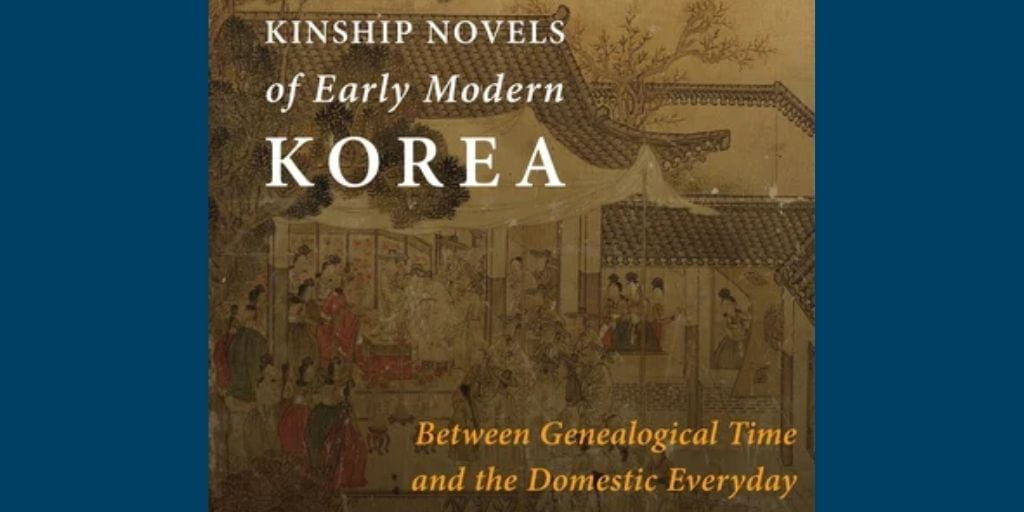4/22 Kinship Novels of Early Modern Korea: Between Genealogical Time and the Domestic Everyday
Book Talk Series on Chosŏn Korea
Speaker
Ksenia Chizhova, Princeton University
Moderator
Jisoo M. Kim, GW Institute for Korean Studies
Thursday, April 22, 2021
9:00 a.m. – 10:30 a.m. Eastern Time
Virtual Event via Zoom
This event is on the record and open to the public.
Win a book giveaway! We will send one copy of the book to one of the guests who submit their questions during the event!
Event Description
Violence and bloody family feuds constitute the core of the so-called lineage novels (kamun sosŏl) that circulated in Chosŏn Korea from the late seventeenth to the early twentieth century. Such subject matter becomes ever more puzzling when we consider that the main audience for these texts were elite women of Korea, who were subjected to exacting comportment standards and domestic discipline. Coeval with the rise and fall of Korean patrilineal kinship, these texts depict the genealogical subject—emotional self socialized through the structures of prescriptive kinship, but kinship itself is treated as a series of conflicts between genders and generations.
This talk will contextualize lineage novels and the domestic world in which they were read within the patrilineal transformation of the Chosŏn society and the emergence of elite vernacular Korean culture, patronaged by elite women. The proliferation of kinship narratives in the Chosŏn period illuminates the changing affective contours of familial bonds and how the domestic space functioned as a site of their everyday experience. Drawing on an archive of women-centered elite vernacular texts, this talk uncovers the structures of feelings and conceptions of selfhood beneath official genealogies and legal statutes, revealing that kinship is as much a textual as a social practice.
Speaker
Ksenia Chizhova (left) is Assistant Professor of Korean Literature and Cultural Studies at Princeton University. Her first book, Kinship Novels of Early Modern Korea is situated at the intersection of the history of emotions, family, and scriptural practices in Korea, from the late eighteenth to the twentieth century. Now in progress, her second manuscript project traces the shifts in contexts and infrastructure of graphic media that shaped the visual aesthetics of the Korean script, from the 17th century calligraphic practice to the contemporary fonts and graphic design in the two Koreas.
Moderator
Jisoo M. Kim (right) is Korea Foundation Associate Professor of History, International Affairs, and East Asian Languages and Literatures. She currently serves as the Director of the Institute for Korean Studies and the Co-Director of the East Asia National Resource Center at GW. She also serves as the Editor-in-Chief of the Journal of Korean Studies. She is a specialist in gender, law, and emotions in Korean history. Her broader research interests include gender and sexuality, crime and justice, forensic medicine, literary representations of the law, history of emotions, vernacular, and gender writing. She is the author of The Emotions of Justice: Gender, Status, and Legal Performance in Chosŏn Korea (University of Washington Press, 2015), which was awarded the 2017 James Palais Prize of the Association for Asian Studies. She is also the co-editor of The Great East Asian War and the Birth of the Korean Nation by JaHyun Kim Haboush (Columbia University Press, 2016). She is currently working on a book project tentatively entitled Sexual Desire, Crime, and Gendered Subjects: A History of Adultery Law in Korea. She received her M.A., M.Phil., and Ph.D. in East Asian Languages and Cultures from Columbia University.



